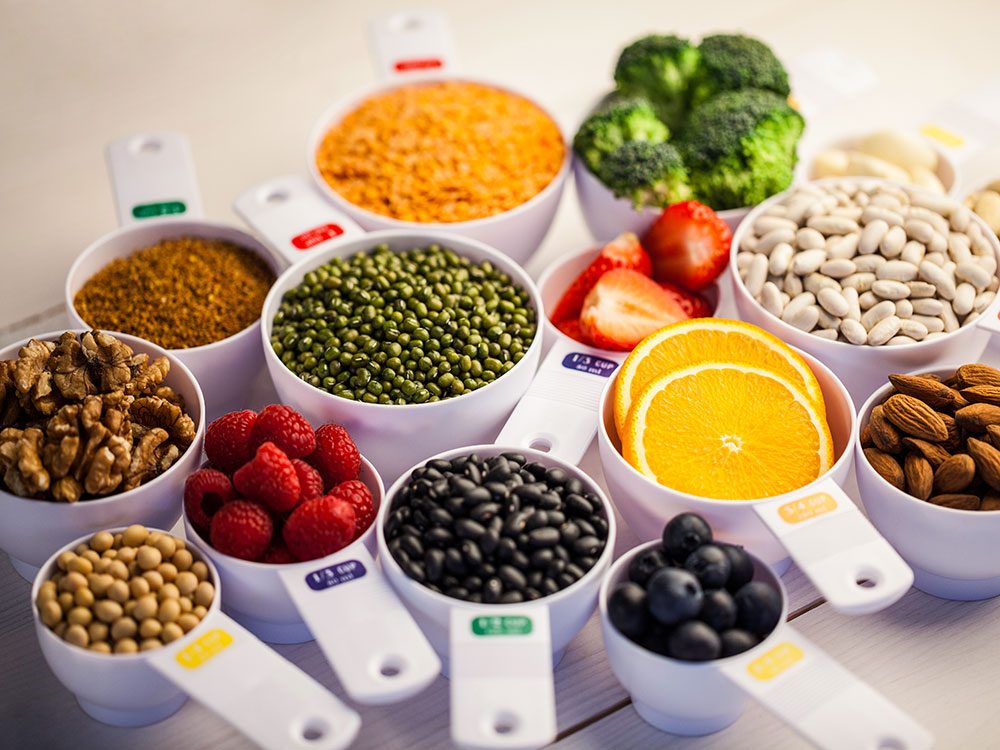
1. Making New Year’s Resolutions
Health and fitness expert Dai Manuel’s message for Canadians is simple: Step away from flashy fads diets and unsustainable meal plans, and get back to the basics of food.
Take New Year’s resolutions, for instance, which all too often fall apart before January’s end. Dai Manuel’s solution? Get rid of them altogether. “We’re all conditioned to set these big and lofty New Year’s resolutions, but a lot of the time we set ourselves up for failure,” says Manuel. “We either already know deep down that we can’t keep them, or we get discouraged early on and as a result, we don’t finish them.”
Manuel recommends setting realistic and long-term goals instead, like eating more whole and unprocessed foods. Use Manuel’s “SMART” principle, ensuring your goals are Specific, Measurable, Achievable, Relevant and Timely. Goals that meet those criteria are more likely to be relevant to the person who’s setting them. And if you stumble along the way, don’t sweat it. “Draw that line in the sand and step over it,” he says.

2. Counting Calories
Quit counting calories and focus on the nutrients in your food instead, says Manuel. “Counting calories is one of those slippery slopes because calories aren’t equal,” he says. “A gram of sugar may only give you four calories, but a gram of apples is very different in nutrient quality.”

3. Eating Out
While eating out at restaurants can be fun, it’s also more convenient than cooking meals at home. “The problem with eating out is we can’t control portion sizes or what goes into the food,” says Manuel.
If you’re a parent or a busy professional, focus on home-cooked meals that you can set and forget. That means investing in a good old fashioned slow-cooker, or making big batches that you can easily get two or three meals out of for the whole family, like Grab-and-Go Tortillas or Beef with Baby Greens and Horseradish Vinaigrette.

4. Eating While Distracted
It’s important to eat meals uninterrupted and undistracted, says Manuel. One way to do that is to tap into the premise of mindful eating. “When we get distracted by our devices, we stop paying attention to how our food is making us feel,” he says. “You stop paying attention to your stomach and most importantly, your satiation level.”
Start with just one meal per day: put the devices aside and take an inventory on how you’re feeling at least an hour after you’ve eaten. If you feel like crashing, chances are you’ve had too much sugar and not enough protein. “Make adjustments [to your diet] on how you feel versus what you read on the label.”

5. Eliminating Food Groups From Your Diet
“Diets have often been geared towards weight loss, and most of the time they’re not sustainable,” says Manuel. Instead, he recommends skipping diets altogether and getting back to the basics by focusing on the food groups instead.
Manuel’s ideal meal contains 50 per cent fruits and vegetables (the more colour, the better), 25 per cent whole grains (couscous, quinoa or wholegrain bread) and 25 per cent high-quality, single-sourced protein like salmon. Balanced meals, he says, help you feel more satiated (so you don’t go binging on other foods).